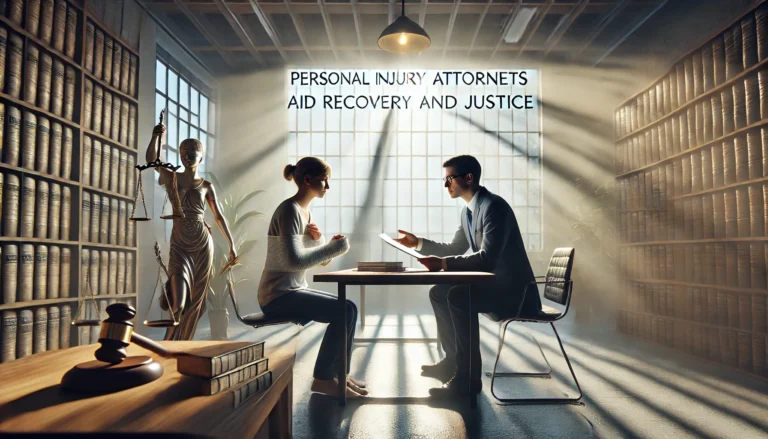Introduction
Accidents can leave more than physical scars; they carry the weight of emotional upheaval and a profound sense of injustice. Amidst this chaos, a personal injury lawyer emerges not solely to secure financial settlements but to restore a semblance of balance to disrupted lives. These legal professionals manage the intricacies of legal cases while victims focus on healing and rebuilding. The process extends beyond paperwork and court proceedings; it ensures victims do not endure this overwhelming journey alone.
For many individuals, the path post-accident can seem like an unchartered territory filled with uncertainties about the next steps. This article highlights how personal injury attorneys play crucial roles in aiding victims beyond mere litigation.
Understanding the Initial Shock of an Accident
After a crash, emotions usually increase suddenly. Fear, bewilderment, and fury are typical reactions, blending with the authentic bodily discomfort caused by injuries suffered. Proper medical evaluation and care during distress are essential, even if injuries appear minor. Taking prompt action guarantees appropriate treatment and helps create the crucial initial paperwork for a future personal injury claim, establishing the basis for seeking justice.
The Role of a Personal Injury Attorney
Engaging a personal injury attorney introduces an adviser, a negotiator, and a strategist into the fold. These professionals offer guidance throughout each stage of the legal journey, from filing claims to engaging in complex settlement negotiations. Their expertise and familiarity with the legal system relieve the heavy burdens often shouldered by accident victims, allowing them to concentrate efforts on personal recovery and family without the stress of legal procedures.
Gathering Critical Evidence
Constructing a compelling case hinges on the collection and preservation of evidence. Attorneys facilitate this crucial process, ensuring all pertinent facts, accident reports, medical records, or witness testimonies are gathered and maintained. With the advent of technology, such as dashcams and smartphones, documenting the scene and details of incidents has been dramatically enhanced, offering invaluable support to the claims process. This systematic approach solidifies a case’s foundation, providing credibility and clarity to the victim’s narrative.
Medical Recovery and Legal Proceedings
While recovering from physical injuries takes precedence, the entanglement of legal matters can swiftly introduce complications into an already stressful situation. Attorneys are the bridge between medical professionals and the legal system, securing comprehensive documentation of injuries and critical medical prognoses for the case’s progression. They ensure that legal proceedings do not overshadow the medical recovery process, maintaining a balance that respects the victim’s need for healing while advancing the necessary legal actions.
Navigating Insurance Challenges
Engaging with insurance companies often presents significant challenges, with many offering settlements that undervalue the actual costs of recovery. An attorney’s role is to expertly navigate these negotiations, advocating fiercely for a fair compensation package that accurately reflects the victim’s needs. Legal guidance makes avoiding common pitfalls in dealing with insurance adjusters manageable.
Emotional Support Through the Legal Journey
An often overlooked dimension of an attorney’s role is the emotional support they provide. Legal battles can be emotionally draining and daunting to face alone, yet with a committed attorney; victims gain a steadfast partner in their corner. Attorneys frequently extend services beyond legal advice, acting as compassionate guides through an isolating experience. Their support can bolster the victim’s emotional resilience, ensuring they feel heard, valued, and shielded throughout the legal journey.
Beyond Compensation: Securing Justice
While the financial relief of compensation plays a vital role in recovery, the profound sense of justice achieved is equally impactful. Attorneys work tirelessly to right the wrongs their clients encounter, ensuring justice is served to provide peace of mind and closure. This pursuit transforms the narrative from victimhood to empowerment, enabling individuals to emerge from their ordeals with a sense of vindication and renewed purpose.

